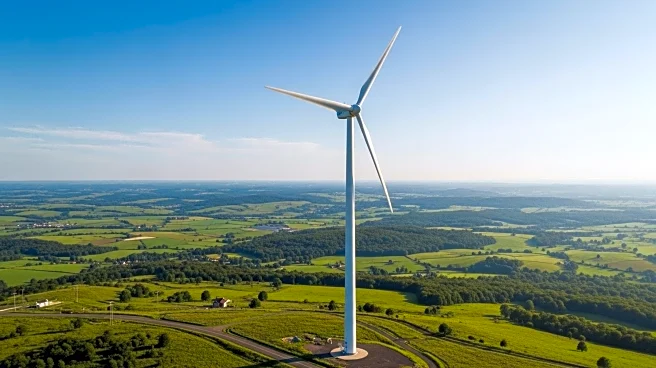What's Happening?
The global transition to renewable energy is gaining momentum, offering hope in the fight against ecological disaster. Historical reliance on fossil fuels has led to significant greenhouse gas emissions, contributing to climate change. However, renewable energy technologies like solar and wind are becoming increasingly affordable and efficient. The price of onshore wind power has dropped by 70% in the last decade, while solar costs have fallen by nearly 90%. This shift is driving rapid deployment of renewables, surpassing previous forecasts. The transition is crucial to limiting global warming and reducing reliance on fossil fuels.
Why It's Important?
The shift to renewable energy is vital for mitigating climate change and reducing environmental impact. It represents a significant opportunity to decrease greenhouse gas emissions and transition to cleaner energy sources. The affordability and efficiency of renewables are making them more accessible, potentially transforming energy markets and reducing dependence on fossil fuels. This transition could lead to economic benefits, job creation, and improved public health by reducing air pollution. The success of renewable energy technologies demonstrates the potential for innovation and collaboration in addressing global environmental challenges.
Beyond the Headlines
The transition to renewable energy also highlights the need for supportive policies and regulations to ensure sustainable development. While market forces are driving the adoption of renewables, government intervention may be necessary to accelerate progress and address challenges like energy storage and grid integration. The story of whale oil's replacement by petroleum serves as a reminder that technological advancements alone are not enough; regulatory measures are crucial for protecting ecosystems and ensuring long-term sustainability. The global cooperation seen in the Montreal Protocol offers a model for addressing climate change through collective action.











